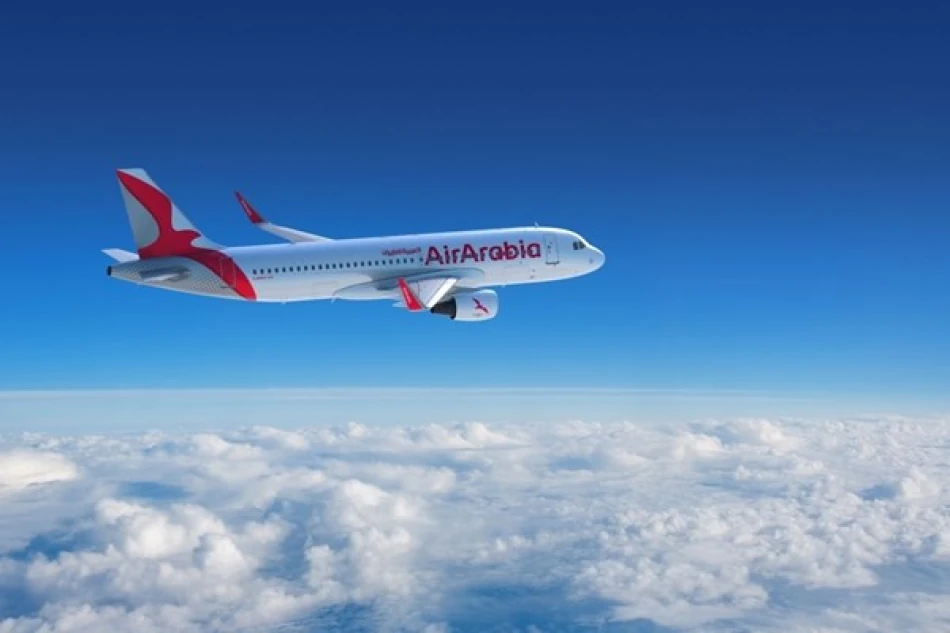
Emirati Airline Expands Operations in Multan and Faisalabad, Boosting Connectivity Across Pakistan
Air Arabia Abu Dhabi Doubles Down on Pakistan Routes as UAE-Pakistan Travel Demand Surges
Air Arabia Abu Dhabi is significantly expanding its Pakistani operations, more than doubling flights to key industrial cities Multan and Faisalabad while adding new routes to Sialkot. The aggressive expansion reflects growing economic ties between the UAE and Pakistan, driven by robust labor migration, trade relationships, and Pakistan's position as a crucial source market for UAE tourism and business travel.
Strategic Route Expansion Targets Pakistan's Economic Heartland
The low-cost carrier will increase weekly flights to Multan from two to five, with plans to operate daily services starting September 2024. Meanwhile, Faisalabad will see its frequency double from two to four weekly flights. These cities represent Pakistan's textile and agricultural powerhouses, home to significant expatriate communities working across the Gulf region.
The timing appears strategic, coinciding with Pakistan's gradual economic recovery and the UAE's continued positioning as a regional hub for South Asian workers and businesses. Faisalabad, known as Pakistan's "Manchester" for its textile industry, and Multan, a major agricultural center, generate substantial travel demand from business travelers and migrant workers.
Market Dynamics Drive Expansion Strategy
"Pakistan represents one of our key markets operating from Abu Dhabi," said Adel Al Ali, CEO of Air Arabia Group. The expansion reflects calculated demand forecasting rather than speculative growth, particularly as economic air travel between the two nations continues recovering post-pandemic.
The UAE-Pakistan corridor ranks among the busiest international routes globally, with an estimated 1.7 million Pakistanis residing in the UAE. This demographic creates consistent demand for affordable air connectivity, especially to secondary cities that traditionally relied on expensive connecting flights through Karachi or Lahore.
Fleet Growth Supports Ambitious Regional Plans
Air Arabia Abu Dhabi's expansion is backed by concrete capacity increases, with two additional Airbus A320 aircraft joining its 12-plane fleet before year-end. This 17% fleet growth signals the airline's confidence in sustained demand recovery and provides operational flexibility for further route launches.
The A320 configuration emphasizes passenger comfort in the economy segment, featuring enhanced legroom and free in-flight entertainment through the "SkyTime" streaming service. This approach targets price-sensitive travelers who still expect reasonable service standards—a demographic that dominates UAE-Pakistan travel.
Competitive Positioning in Crowded Market
The expansion puts Air Arabia in direct competition with Pakistan International Airlines, Emirates, and other carriers serving the UAE-Pakistan market. However, the focus on secondary Pakistani cities offers a strategic advantage, as these routes typically see less competition from full-service carriers that prioritize major hubs.
Air Arabia's low-cost model particularly appeals to Pakistani expatriate workers, who often travel multiple times annually and prioritize affordability over premium services. The increased frequency also provides scheduling flexibility that business travelers value when planning trips between the UAE's commercial centers and Pakistan's industrial regions.
This expansion strategy mirrors successful approaches by other Gulf low-cost carriers, particularly flydubai's focus on underserved regional routes that complement their hub carriers' networks. As regional travel demand continues recovering, Air Arabia's Pakistan bet could establish significant market share in a traditionally price-sensitive corridor.
Most Viewed News

 Layla Al Mansoori
Layla Al Mansoori






